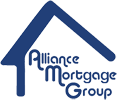Reverse mortgage loans have been around for decades and aren’t going away anytime soon. Because this kind of financial tool has been around for so long, there can be a lot of confusion and misinformation about reverse mortgage loans and how they work. In fact, many people consider reverse mortgage loans to be a poor financial option while just as many people have used reverse mortgage loans to their benefit. If you are unsure about whether a reverse mortgage loan is the best option, consider these reverse mortgage loan pros and cons.
 The Pros of a Reverse Mortgage Loan
The Pros of a Reverse Mortgage Loan
Reverse mortgage loans have many benefits, the most obvious being financial security. Because a reverse mortgage is a loan, you can borrow against equity built up in your home to create usable income. This is often a big benefit for individuals on fixed budgets — a pretty common scenario after retirement. These funds can be used for daily living expenses such a bills or the cost of assisted living. With a reverse mortgage loan, you can often choose how you would like to receive funds, whether that be a lump sum, credit line or a monthly cash advance. Generally, cash advances are non-taxable.
If you receive Social Security or Medicare benefits, a reverse mortgage loan payout will not impact your benefits — it is possible to receive both at the same time, allowing you to still use benefits while supporting yourself with more income than just what Social Security provides.
Many people worry about having to repay a reverse mortgage loan, concerned that they may be stuck with a bill larger than the value of their home. According to the Federal Trade Commission (FTC), you cannot owe more than the value of your home, regardless if you were paid more than your home’s value.
The Cons of a Reverse Mortgage Loan
Now that we’ve explained some common reverse mortgage loan pros, there are a few cons to consider. The biggest reverse mortgage loan con is that you likely will pay fees related to this kind of loan, including:
- Loan origination fees – Upfront fees that a lender charges when processing your application and preparing the loan; because a reverse mortgage loan is technically a loan, many applicants are often responsible for these fees.
- Closing costs – Fees related to the transfer of property from one owner to the next; these are common if you plan to sell your home later on to repay the reverse mortgage loan.
- Monthly servicing fees – A lender may charge a monthly fee to handle your loan.
These fees can often be rolled into the balance of your loan, but you should be aware that they exist. It is also important to understand that a reverse mortgage loan collects interest over time, meaning you will have to pay back more than you originally were awarded. Most reverse mortgage loans have variable interest rates instead of flat rates, which means the amount of interest you pay can change over time.
And a final reverse mortgage loan con that should not be overlooked: reverse mortgage loans use up the equity in your home, meaning that you will have fewer assets at your disposal. While this isn’t a big deal for some individuals, it impacts any inheritance you plan to pass on to heirs.
Interested in learning more about reverse mortgage loan pros and cons? Contact
